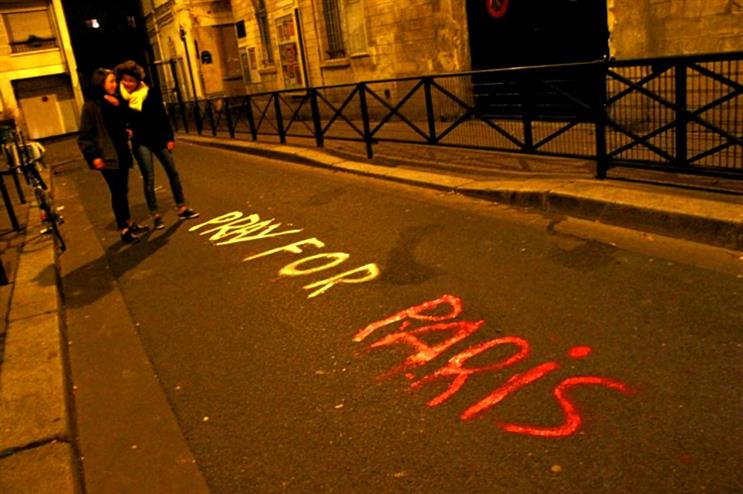Before bombs, screams and gunfire that echoed around the streets of Paris last Friday night, a rock band filled the Bataclan Theatre with music enjoyed by hundreds of people. A concert is an unremarkable event – one that the majority of the Western population have experienced – yet one that now is met with anxiety, and even terror from potential guests.
While events in the UK continue to take place amid an MI5-cetified ‘severe’ level threat of international terrorism, they are no longer viewed by the public as a low-risk affair; there is now a dark paradox between the enjoyment guests hope to get out of an event and the terror attack they pray they will not have to endure.
Guests to the ATP World Tennis Finals currently taking place at The O2 are met with airport-style security both at the door and before entering the main arena, while last night (18 November) saw country singer Kacey Musgraves dub her fans "brave" for coming to her concert at the Royal Albert Hall.
The image of armed police at Tuesday's (17 November) France versus England game at Wembley was a stark reminder of how serious event security has now become.
Making changes
Tom Sutton-Roberts is the general manger at London venue Troxy. "Since the tragedy we have been in touch with our suppliers and the police to have an open discussion about ways to improve on security," he says. "We have also added more security to the venue and increased bag searches to hopefully make our guests feel more at ease."
He adds: "We’ve had discussions with clients over the last week and some promoters will be implementing additional security resources, which we will liaise with them on."
Tim Peace, director of security at , also notes that it’s the client who dictates any changes to regular protocol. He explains: "We have been contacted recently by a client for whom we provide security and risk management provision to, whose core business is music festivals in the French Alps. The client sought reassurance that the message we send to festival-goers - and parents of - should be one of unity: against not being 'terrorised' and to maintain, not ramp up, already high standards of risk and threat management.
"I hope the effect on the industry will be that companies and operatives will increase their training and development strategy, employ more aware and knowledgeable operatives across the board for all jobs but, it will all be driven by client expectation."
Despite the terror threat, it’s important to note that the UK event industry is, in general, continuing business as usual. Last night’s ATP Finals game was a sold-out affair and as far as Event is aware, no events on UK soil have been cancelled as a result of the Paris attacks. Sutton-Roberts says: "I don’t think the spirit of gig-goers will reduce drastically. There seems to be a very strong feeling of carrying as normal and it’s important that the music and events continue to play.
"It’s not necessarily about the financial burden and bottom-line figures, but being a responsible and being a safety conscious industry."
Cris Cicirello, joint managing director at Wasserman Experience, agrees that event cancellations in the UK will be unlikely, he adds: "I would presume that any enhanced security stance will be mirrored by all sizeable events held across the country for the foreseeable future."
From his point of view, these measures are now not seen as a hindrance to guests. "This week at the Barclays ATP World Tour Finals we are seeing enhanced security at The O2, with a number of steps taken to ensure the safety of the audience. While this has meant increased queuing times to gain entrance, there has been a general understanding from everyone attending the event that this is a necessary step."
Creating safe spaces
If Paris is to be seen as some sort of perverse warning to the rest of the world, event organisers will now be under scrutiny to keep their guests as safe as possible. How can this be achieved?
"Over the coming months, we intend to implement any changes required from the intelligence that comes from the French authorities over the coming weeks and months," says Sutton-Roberts. "This will help not just us to understand, but looking ahead it will also help the industry see where we can make improvements based on these reports."
David Boswell, managing director of specialist tactical security group TSG Policing, advocates a multi-agency approach, so costs can be contained while all parties play to their strengths. "[We] can play a significant role to that end, alongside traditional security companies, the police and event organisers," he says.
Cicirello agrees that collaboration is the way to handle high-security situations. He explains: "We retain our own health and safety and security consultants and always work closely with our clients, rights holders, venues and brands to ensure that they are talking with their internal consultants, to ensure a safe and secure environment.
"As a brand experience agency, we have to trust that the information that our consultants and those of our clients receive through their liaison with the police and other security agencies is correct. We then work together with these consultants and our clients to act accordingly."
Events are seen as an integral part of UK culture and must continue in defiance of Isis. As for right now, Boswell says: "Letting the public know they are safe at events is the priority. We need to highlighht the fact that these are not soft targets for terrorists."
More:
Comment below to let us know what you think.
For more in-depth and print-only features, showcases and interviews with world-leading brands, don't miss the next issue of Event magazine by .


